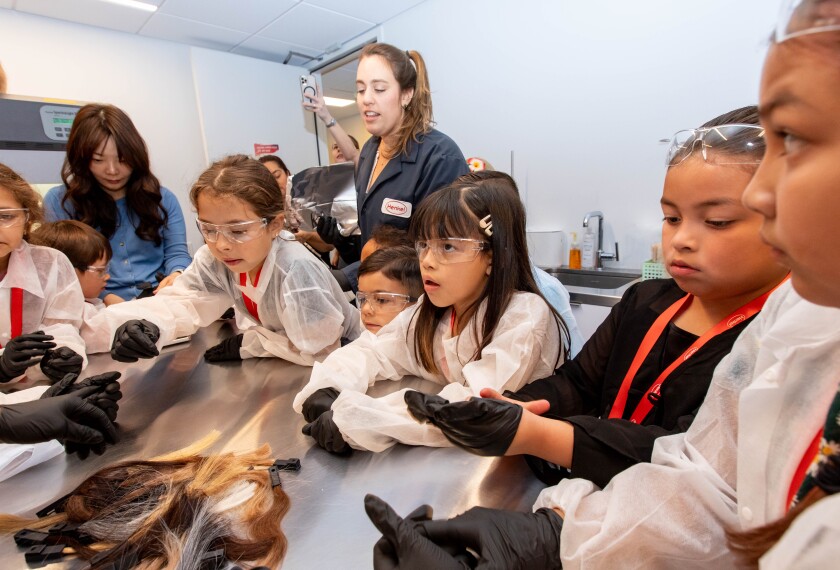There’s no better time to make the case for science education than right now. For months, we’ve witnessed the largest ecological disaster in U.S. history unfold, creating debates among scientists and engineers about how the oil spill in the Gulf of Mexico can be contained. This crisis has created an opportunity for American children at every grade level to become scientists while questioning and exploring the future of the nation’s energy challenges.
This is a time when we should be supporting science and mathematics teachers to help them engage our future problem-solvers, and tap into the natural curiosity and concern young people are experiencing at this moment.
We know that, statistically, science and math teachers leave their profession in higher numbers than other teachers, mainly because of the competitive opportunities in the marketplace. It is also a fact that states nationwide have slashed education budgets, leaving us with an even greater need to provide teachers with the resources and support to prepare children to succeed in these critically important fields.
As Jeff Johnson, an Advanced Placement physics teacher at Hoover High School in Alabama, puts it, “Everything that is old is new again.” While the physics program at his school is experiencing increases in enrollment and class sizes, budgets are shrinking, and the school has no state or district funds to support the growth of AP courses. Johnson, like many teachers nationwide, has been compelled to find innovative ways to support his AP students and keep the playing field level for those students who may be less fortunate than others.
He is finding ways to simplify laboratory activities and demonstrations to minimize costs, while ensuring that students still get a meaningful and rigorous experience. Since there are no funds to purchase additional hardware or software, this has meant, in his case, using “lab circuits.” His students visit lab stations set up in the classroom to explore a specific area of study. At each station, groups of students are given an open-ended problem. Then they design the specified apparatus and present it to the class as a lab demonstration. Each of these labs explores different concepts, laws, or principles, which allows the students to experience various lab activities without multiple costly sets of equipment. So despite cost-cutting, this enterprising teacher has found a way to maintain the intellectual stimulation and passion necessary to develop future scientists and engineers. Not all students are as lucky.
Johnson’s teaching philosophy centers on the belief that students want to be successful as learners. “For a student to want to be successful, they have to perceive that teachers care about them and that learning is accessible,” said Johnson, the national winner of the Siemens Awards for Advanced Placement, which honor one teacher in each state. “The teacher serves as a facilitator, using his or her skill as an artist of learning to make the content accessible and within each student’s reach. If given the right amount of support, every student, no matter what his or her background, can and will learn.”
At Hoover High School, which is experiencing rapid demographic changes, any student who has an interest in physics and the sciences can try AP physics, and teachers are working together to determine how to increase participation of low-income and at-risk students. Johnson plans to use his $5,000 grant to purchase high-tech equipment and open up professional-development opportunities for his fellow teachers, so that his students are able to enter science competitions.
While corporations and government are considering the implications of the tragedy in the Gulf, let’s also consider how later generations will inevitably have the responsibility, and the opportunity, to use science and technology not only for recovery, but also to prepare for a safer and better future. This is a time when public and private partners should come together in creative ways to encourage teachers in their profession.
This month, the Siemens Foundation and the College Board honored AP science and mathematics teachers like Jeff Johnson at the Advanced Placement Annual Conference in Washington. There should be more such incentives aimed at keeping these teachers in the classroom and encouraging other talented instructors to join them.
Just as we depend on our nation’s teachers to inspire the next generation’s quest for solutions to the problems of today and tomorrow, all of us, in both the public and the private sector, must find innovative new ways to support them in this difficult but essential task. The future of the nation depends on it.




